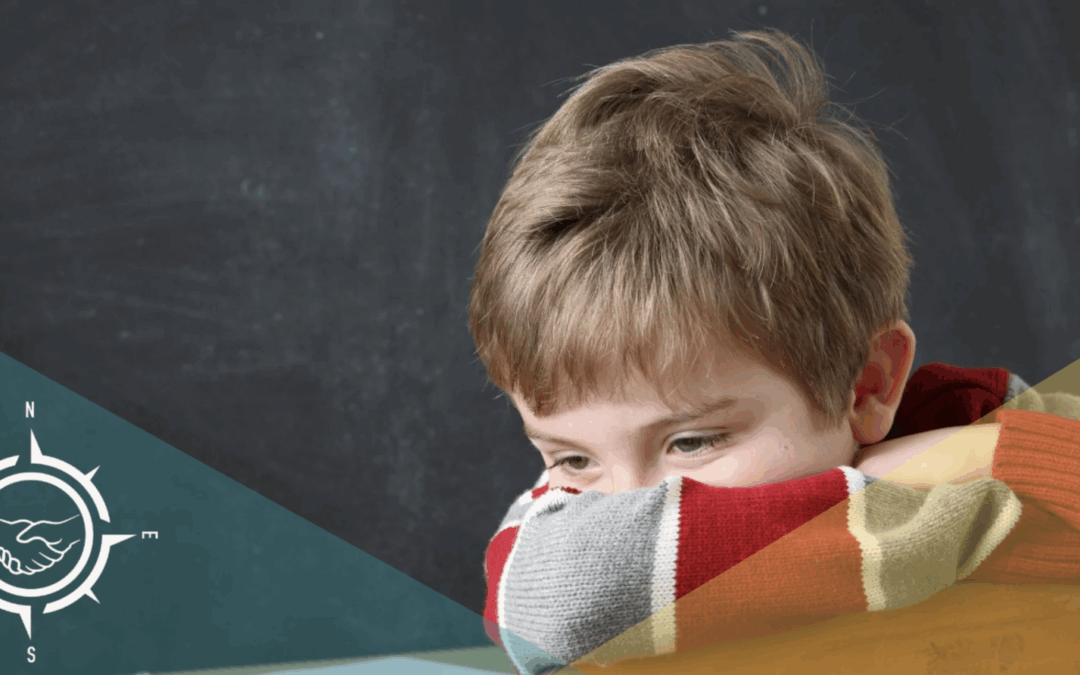3 Strategies to Overcome Chronic Procrastination
Everyone puts things off from time to time when they feel overwhelmed, tired, or just don’t like doing a certain activity. We’ve all heard that getting things done requires “better habits” or “willpower.” Phrases like “just do it” are common notions when it comes to getting things done.
Why Children with Trauma Procrastinate
With childhood trauma, procrastination feels more painful and difficult to overcome. This is not because kids with trauma lack the willpower to do something; rather, it is often the result of self-sabotage. In fact, children with trauma often have more willpower than the average person, but it often all goes into survival and self-protection.
When you experience repeated trauma, it rewires your brain and you are constantly in survival mode. Children with trauma are hypervigilant, constantly looking out for threats or danger. This can make it difficult to learn and move toward a goal. Fearing making a mistake stops kids with trauma from indulging in curiosity and exploration.
So instead of seeing where things lead them in a journey of exploration, children with trauma feel the need to control the outcome. Why? Because uncertainty is dangerous.
So how does this lead to procrastination?
If you need to know the outcome to feel safe, it’s less likely you will tolerate the process where a certain ending isn’t guaranteed. This makes it easy to talk yourself out of starting something new.
If you fear making mistakes or being seen as a failure, it’s hard to put yourself out there, so you choose not to start something.
This fear of or inability to start something is procrastination. But what can you do if your child with trauma has become a chronic procrastinator?
Triggers for Chronic Procrastination in Children with Trauma
If your child with trauma constantly delays tasks or avoids challenges by simply waiting until it’s too late to do anything about them, it’s best to get to the root cause of the procrastination. Knowing the “why” can help you develop personalized strategies to help your child overcome their fear of starting a task.
- Is your child motivated more by fear of failure than the lure of achievement?
- Does your child put off specific tasks, or does any task qualify?
- Does your child feel anxious when they procrastinate, or do they delay the task to induce a feeling of relief?
- How is procrastination affecting your child’s day-to-day life or relationships?
- Are there times or tasks your child is more likely to put off? Are there patterns you see?
Strategies to Overcome Chronic Procrastination
Mainstream advice when it comes to overcoming procrastination won’t help kids with trauma. Common thinking is that procrastination is bad, and focuses on guilting people into action. This serves to only further traumatize your child.
What you should do is focus on helping your child rewire their brain to overcome their fear of starting something new, whether it’s fear of the unknown or fear of failure. It’s about guiding your child on learning how to take on and push through challenges but also about how to deal with disappointment or other negative emotions when we don’t get the ideal end result.
Here’s how to get started:
1 | Practice Kindness
Procrastination hurts but berating yourself for it only creates more pain. Rather than shame, help your child practice kindness toward themselves. They are, after all, only protecting themselves the best way they know how.
Help them understand why they avoid things. Often, the underlying reasons for self-sabotage are unknown to the person who has experienced trauma. But knowing the why can help your child develop a strategy to deal with their avoidance.
2 | Take Baby Steps
The “just do it” mentality doesn’t work for kids with trauma. Forcing yourself to do something despite how terrified you feel can backfire. It often exacerbates those unsafe feelings and makes your child feel more dysregulated.
Rather than jumping into a huge task, have your child take baby steps. Start with something small that pushes them out of their comfort zone just a little. Once they have accomplished that small task, they will begin to have the confidence to take on the next step and the next step.
3 | Learn the Difference Between Safety and Comfort
Finally, help your child with trauma learn the difference between feelings of safety and feelings of comfort. It’s easy to slip into the comfort of never trying something new, and that comfort can feel safe. But comfort and safety are not the same thing. Doing new things that make us a little uncomfortable aren’t necessarily dangerous; they are just new. And we need those new experiences to help with personal growth.
Help your child notice when resistance comes up and acknowledge it without judgment. Then guide them to keep moving through it. Remind them that you are there, helping to keep them safe as they try new things and work on overcoming challenges. Practicing mindfulness and creating space to feel your own emotions creates a healthy way for your child to deal with the fear and emotions of doing something new and keep them regulated.
Final Thoughts
Your child’s tendencies to procrastinate won’t change overnight. It is a process of learning to become more confident in one’s own abilities by taking small steps. Helping your child to learn to be kind to themselves and hold space for their emotions can help them deal with any of life’s challenges in a healthier way.


